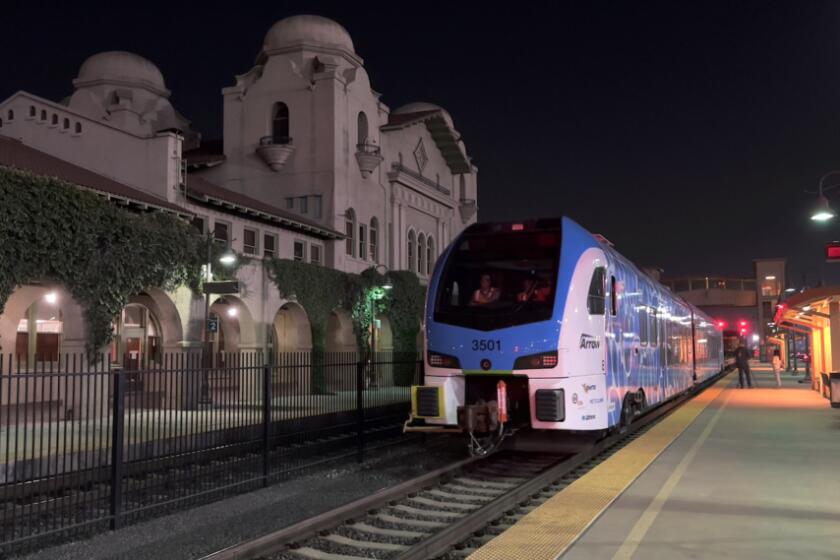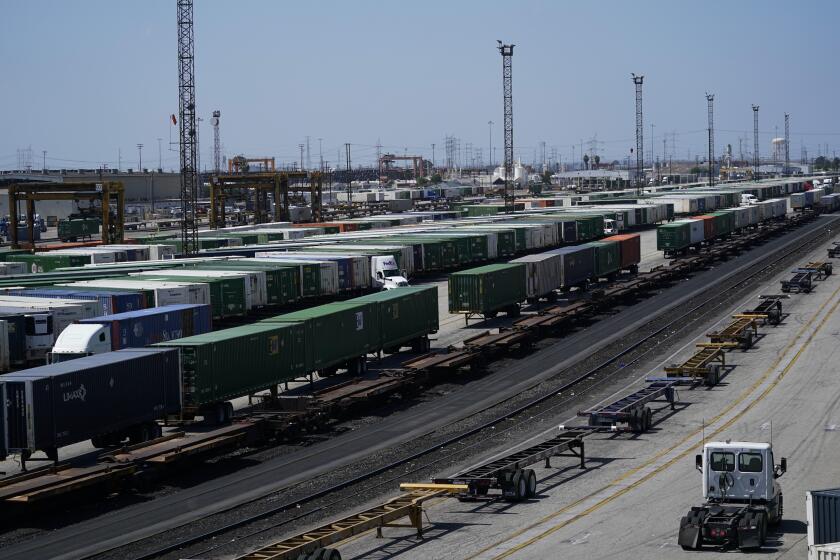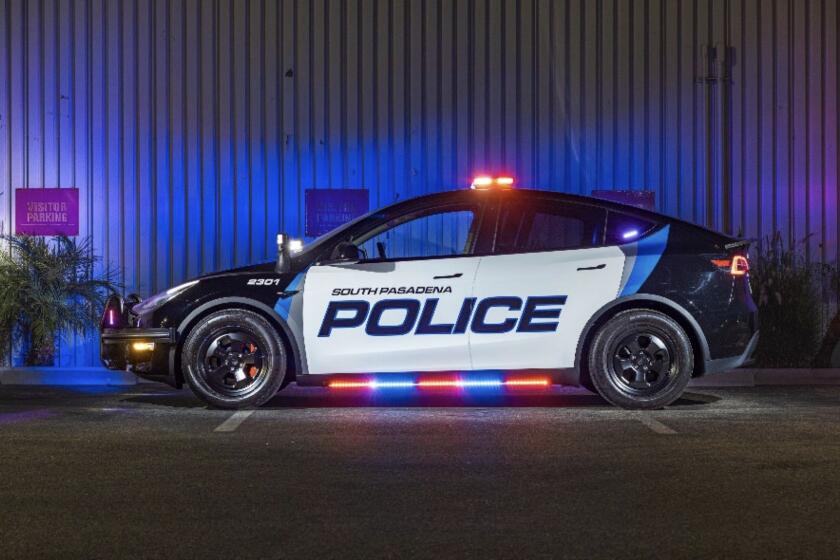Original Firms to Fix Subway Tunnels for Free
Repairs to tunnels of the Los Angeles subway will be made and inspected by the same two firms responsible for the original defective work--but with independent final supervision and at no cost to taxpayers, transit officials have decided.
Franklin E. White, chief executive officer of the Metropolitan Transportation Authority, said Friday that he also has won a commitment from the inspection firm to pay $1.4 million for the studies of the tunnels done in the last few months.
White said he is confident that the repair work, including the filling of voids in the tunnel concrete, will be done properly.
Although final terms for the repairs are being developed, he said the construction contractor, Tutor-Saliba Corp., and the inspection firm, Parsons-Dillingham, have agreed to do the work and to pay all related costs.
“This is a chapter we need to close, and we need to do it honorably,” White said in an interview. “And they have agreed to do so.”
The repairs were recommended last month by specialists retained by the MTA to examine the tunnels and to evaluate their soundness. The experts concluded that although 1.8 miles of twin tunnels between Union Station and Pershing Square were built with concrete thinner than designed, air voids and other deficiencies, the structures are safe.
The MTA studies were ordered after a Times report in August said that many sections of the concrete tunnels were built thinner than designed and that top transit officials had not taken steps to verify the extent of the problem.
The construction costs of the $1.45-billion subway project remain under investigation by the FBI and the inspector general’s office of the U.S. Department of Transportation. White said the repairs, the most simple of which will begin this weekend, will be planned so as to minimize the effect on train service.
Richard Alatorre, a Los Angeles City Council member who is chairman of the transit authority, said he is pleased with the oral agreements reached with the two contractors. He said that as a result of the months-long tunnel controversy, the quality of construction supervision on the Metro Rail project has been improved.
“I think this is obviously a positive step forward,” Alatorre said. “We made it clear--we were not going to pay” for the repairs.
Now, he said, “obviously there is greater oversight taking place. . . . We have all learned from it.”
White told MTA commissioners in a letter that the arrangements with Tutor-Saliba and Parsons-Dillingham “will ensure that the (recommendations of outside experts) will be implemented promptly and at no cost to the taxpayer.”
Costs of making the specified repairs have not been estimated by the MTA.
White said Tutor-Saliba and Parsons-Dillingham have not only agreed to pay for these repairs, such as the filling with cement-based grout of air gaps in the crowns of tunnels between Union Station and Pershing Square, but also have agreed to perform or pay for other repairs that might be required, depending on the findings of exploratory work recommended last month by the tunnel experts.
The specialists noted structural problems requiring further study at the junctures between the twin tunnels and various utility rooms. They also called for “exploration grouting” of areas between the outside of the concrete tunnels and the ground surface to determine whether other major air voids exist and require filling. A tunnel wall adjacent to the Civic Center station may also have to be removed and replaced because of its weak, “honeycombed” concrete.
One of the most challenging repairs, according to engineers, will be the filling of air voids in the tunnel crowns, which should have been filled at the time of construction.
Because the voids must be filled with a cement-based grout pumped under pressure, they said, the substance is apt to run and drip all over the tracks.
“It does take careful quality control to do this,” said Edward J. Cording, a University of Illinois engineering professor who headed the MTA’s three-member tunnel panel. “When you’re grouting, and particularly going back and re-grouting, it’s real hard to follow where all the grout is going. . . . It does take quite a bit of monitoring effort to do that. It’s a program that (should be) set up very carefully.”
A separate outside specialist, Barba-Arkhon International, evaluated the performance of Parsons-Dillingham and reported last month that the firm fell short of “acceptable industry practice” in its inspection of work and six other areas of performance.
White said that rather than seeking competitive bids for the repairs, he is comfortable in allowing the original contractors to perform and inspect the work. The public interest is safeguarded, he said, because a third outside firm--Wiss, Janney, Elstner Associates--will provide final oversight.
White said the staff and possibly the MTA board will discuss whether the agency will seek any remuneration from Tutor-Saliba for pouring numerous areas of concrete less than the design-specified 12 inches of thickness. “The advisability of pursuing that is something we will discuss,” White said.
White said that he hoped to have cost projections by March 23 for the repairs and written legal agreements with Tutor-Saliba and Parsons-Dillingham, a joint venture controlled by the Pasadena-based Parsons Corp.
White, who is a lawyer, negotiated the tentative agreements in meetings Thursday with Leonard J. Pieroni, chairman and chief executive officer of the Parsons Corp., and Ronald N. Tutor, president of Sylmar-based Tutor-Saliba.
Tutor was traveling Friday and could not be reached for comment. Pieroni said that Parsons had offered, privately, as far back as fall to pay for the outside investigations undertaken by the MTA.
More to Read
Sign up for Essential California
The most important California stories and recommendations in your inbox every morning.
You may occasionally receive promotional content from the Los Angeles Times.







